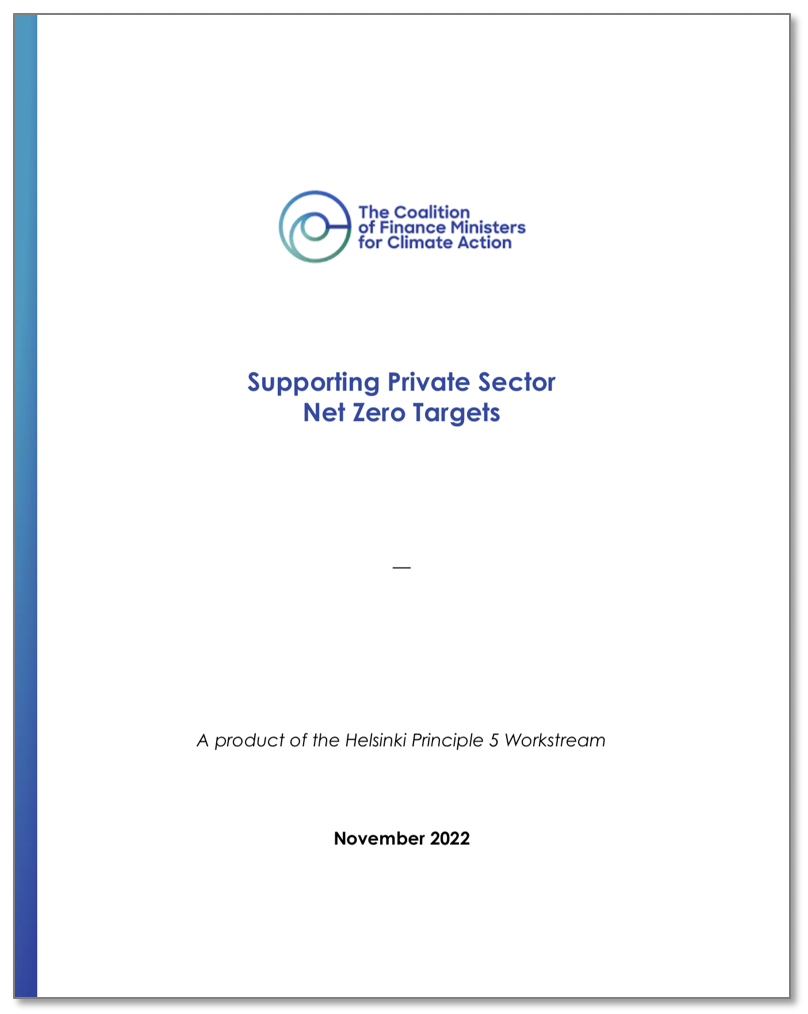The private finance sector is critical to supporting net zero-aligned change in the real economy, contributing to meeting the global climate goals that governments and many financial institutions have committed to, and reducing climate change-related risks. As of mid-2022, 547 private financial institutions with holdings of USD 129 trillion—a sum equal to nearly 32 percent of global financial assets—have made commitments to reach net zero emissions by 2050.
Nonetheless, there are several gaps: private financial institutions representing the remaining 68 percent of global financial assets have yet to commit to net zero by 2050; many of those who have committed have yet to set interim, short-term targets; and targets that have been set vary significantly in their credibility.
Ministries of Finance are well-positioned to support the private sector on this path. They can help create an enabling environment to encourage adherence to net zero targets, support the implementation of those targets, and establish tools to help determine the credibility of commitments.
The Helsinki Principle 5 Workstream has produced a report discussing various soft and regulatory power methods to improve the understanding of commitments, progress, risks, and opportunities domestically, which can also be used to set expectations for best practices internationally. The potential government actions outlined in the report function as both an incentive and as guidelines to encourage private financial institutions to consider climate action and climate-friendly investments. This enables finance ministries to evaluate progress towards climate goals, support sustainable economic development, and monitor climate-related risks.
This research was led by the Climate Policy Initiative (CPI) network, under the direction of the Coalition.
